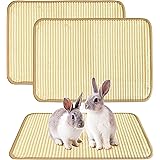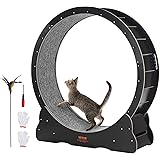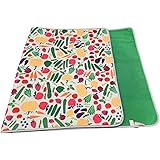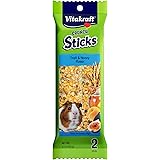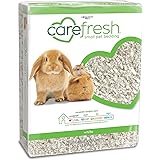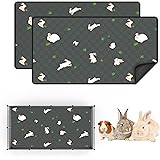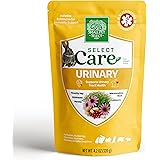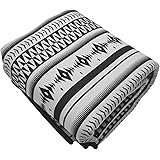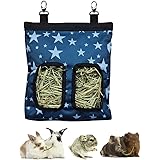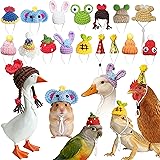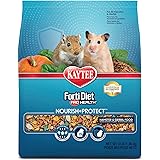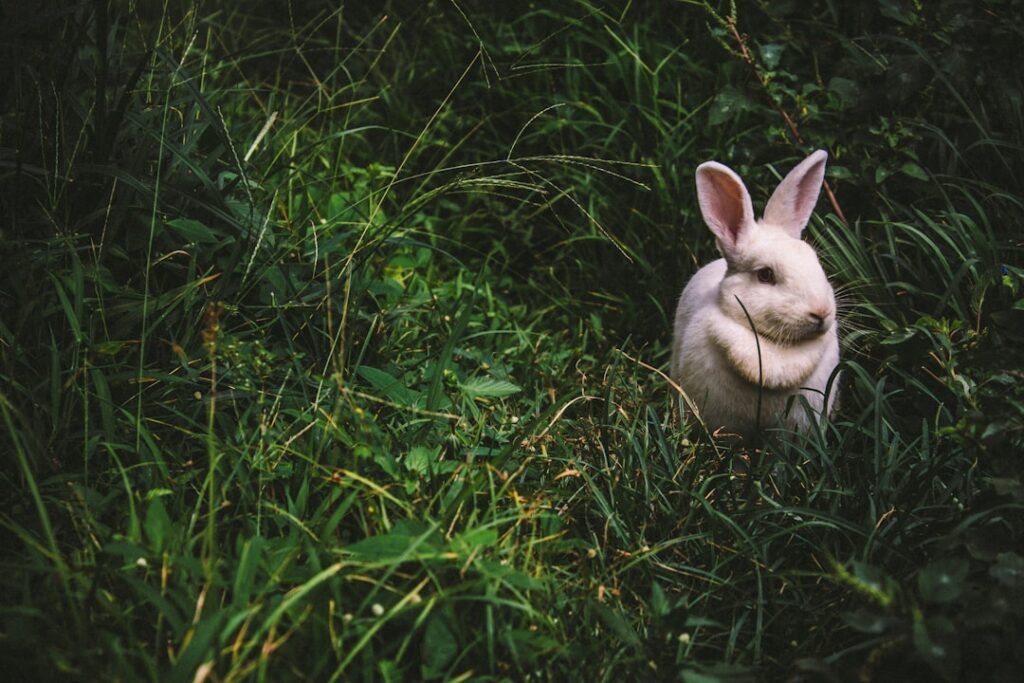
Saccison 2PCS Slicker Brush for Dogs & Pet Comb,Professional Dog Grooming Brush (Goldendoodles,Poodles,Labradoodles) with Extra Long Pins to Effectively Remove Tangles, Knots and Mats (Blue, Large)
$13.97 (as of 02/08/2026 14:07 GMT +00:00 - More infoProduct prices and availability are accurate as of the date/time indicated and are subject to change. Any price and availability information displayed on [relevant Amazon Site(s), as applicable] at the time of purchase will apply to the purchase of this product.)Nexlythara Rabbit Scratching Pad, Sisal Bunny Scratch Mat for Cages - 2PCS Natural Rabbits Nail Scratcher for Indoor Rabbit Chew Toys & Bedding, 16x12 Inch
$16.99 (as of 02/08/2026 14:07 GMT +00:00 - More infoProduct prices and availability are accurate as of the date/time indicated and are subject to change. Any price and availability information displayed on [relevant Amazon Site(s), as applicable] at the time of purchase will apply to the purchase of this product.)VEVOR Cat Exercise Wheel, 43.3" Large Cat Treadmill for Indoor Pets, Running Wheel with Detachable Carpet & Cats Teaser Toy for Running/Walking/Training, Suitable for Most Cats Black
$88.98 (as of 02/08/2026 14:07 GMT +00:00 - More infoProduct prices and availability are accurate as of the date/time indicated and are subject to change. Any price and availability information displayed on [relevant Amazon Site(s), as applicable] at the time of purchase will apply to the purchase of this product.)Small Pets and Company Guinea Pig Fleece Cage Liner for Midwest Habitat | Fleece Guinea Pig Bedding (Midwest, Gray Quatrefoil)
$51.97 (as of 02/08/2026 14:07 GMT +00:00 - More infoProduct prices and availability are accurate as of the date/time indicated and are subject to change. Any price and availability information displayed on [relevant Amazon Site(s), as applicable] at the time of purchase will apply to the purchase of this product.)Tater Pets Guinea Pig Fleece Cage Liner - Tidy Mat - Lap Pad - Corner Pad - Absorbent - Machine Washable - for Guinea Pigs and Hedgehogs (2x5 C&C (28"x 70"), Veggies and Fruit)
$61.95 (as of 02/08/2026 14:07 GMT +00:00 - More infoProduct prices and availability are accurate as of the date/time indicated and are subject to change. Any price and availability information displayed on [relevant Amazon Site(s), as applicable] at the time of purchase will apply to the purchase of this product.)VISCOO 12 Panels Small Animal Playpen, 48" x 24" x 16" Pet Playpen with Waterproof Mat, C&C Cage for Guinea Pigs, Puppy Play Pen, Bunny Playpen, Indoor Outdoor Portable Metal Wire Yard Fence
$31.99 (as of 02/08/2026 14:07 GMT +00:00 - More infoProduct prices and availability are accurate as of the date/time indicated and are subject to change. Any price and availability information displayed on [relevant Amazon Site(s), as applicable] at the time of purchase will apply to the purchase of this product.)Nature’s Miracle Carpet Shampoo, Deep-Cleaning Pet Stain And Odor Remover, 64 Ounces
$14.42 (as of 02/08/2026 14:07 GMT +00:00 - More infoProduct prices and availability are accurate as of the date/time indicated and are subject to change. Any price and availability information displayed on [relevant Amazon Site(s), as applicable] at the time of purchase will apply to the purchase of this product.)Vitakraft Guinea Pig Fruit & Honey Treat Sticks 2 Pack, 3.5 Ounce, Enriched Snack with Wooden Chew Core for Dental Health
$3.28 (as of 02/08/2026 14:07 GMT +00:00 - More infoProduct prices and availability are accurate as of the date/time indicated and are subject to change. Any price and availability information displayed on [relevant Amazon Site(s), as applicable] at the time of purchase will apply to the purchase of this product.)Carefresh 99% Dust-Free White Natural Paper Small Pet Bedding with Superior 10 Day Odor Control & Absorption, for Guinea Pigs, Hamsters, Rabbits, & Rats, 50 L
$22.99 (as of 02/08/2026 14:07 GMT +00:00 - More infoProduct prices and availability are accurate as of the date/time indicated and are subject to change. Any price and availability information displayed on [relevant Amazon Site(s), as applicable] at the time of purchase will apply to the purchase of this product.)Rabbits, like any other animal, require a balanced diet to stay healthy and thrive. A proper diet is essential for their growth, development, and overall well-being. It is important for rabbit owners to understand the nutritional needs of their pets in order to provide them with the right food and ensure their long-term health.
Rabbits are herbivores, which means their diet should consist mainly of plant-based foods. They have specific nutritional requirements that need to be met in order for them to stay healthy. These requirements include a high fiber content, a moderate amount of protein, and a low amount of fat. It is also important for rabbits to have access to fresh water at all times.
Key Takeaways
- Rabbits have specific nutritional needs that must be met to keep them healthy and happy.
- Grass and hay should make up the majority of a rabbit’s diet, as they provide essential fiber and nutrients.
- Vegetables and fruits can add variety to a rabbit’s diet, but should be introduced gradually and in moderation.
- Pellets can be a convenient source of essential nutrients, but should not be the sole focus of a rabbit’s diet.
- Water is a vital component of a rabbit’s diet and should be available at all times.
Grass and Hay: The Foundation of a Rabbit’s Diet
Grass and hay are the foundation of a rabbit’s diet and should make up the majority of their food intake. These foods are essential for rabbits because they provide the necessary fiber for proper digestion and help wear down their constantly growing teeth.
There are several types of hay that are suitable for rabbits, including timothy hay, orchard grass hay, and oat hay. These hays are high in fiber and low in protein and fat, making them ideal for rabbits. It is important to choose good quality hay that is fresh and free from mold or dust.
Rabbits should have unlimited access to grass and hay throughout the day. They should be provided with fresh hay daily and any uneaten hay should be removed and replaced. The amount of grass and hay a rabbit needs will depend on its size, age, and activity level.
Vegetables and Fruits: Adding Variety to Rabbit’s Diet
In addition to grass and hay, rabbits can also benefit from a variety of vegetables and fruits in their diet. These foods provide additional nutrients and help add variety to their meals.
Some nutritious vegetables for rabbits include leafy greens like kale, spinach, and romaine lettuce. Other vegetables that can be fed in moderation include carrots, bell peppers, and broccoli. It is important to introduce new vegetables slowly and in small quantities to avoid digestive upset.
Fruits can also be given to rabbits as a treat, but they should be fed sparingly due to their high sugar content. Some safe fruits for rabbits include apples, strawberries, and blueberries. These fruits should be given in small amounts and only occasionally.
The amount of vegetables and fruits a rabbit should consume will depend on its size and age. It is important to monitor their intake and make sure they are not consuming too much sugar or causing digestive issues.
Pellets: The Convenient Source of Essential Nutrients
| Essential Nutrients | Amount per 100g |
|---|---|
| Protein | 25g |
| Fiber | 8g |
| Iron | 18mg |
| Calcium | 50mg |
| Vitamin B12 | 24mcg |
Pellets are a convenient source of essential nutrients for rabbits. They are specially formulated to provide the necessary vitamins and minerals that rabbits need to stay healthy. Pellets can be a good addition to a rabbit’s diet, but they should not be the main source of food.
There are different types of pellets available for rabbits, including timothy-based pellets and alfalfa-based pellets. Timothy-based pellets are recommended for adult rabbits, while alfalfa-based pellets are more suitable for young rabbits or pregnant or nursing rabbits.
The amount of pellets a rabbit should consume will depend on its size and age. It is important to follow the feeding guidelines on the pellet packaging and adjust the amount as needed. Pellets should be fed in moderation to prevent obesity and other health issues.
Water: The Vital Component of Rabbit’s Diet
Water is a vital component of a rabbit’s diet and should be available at all times. Rabbits need access to clean and fresh water in order to stay hydrated and maintain proper bodily functions.
It is important to ensure that your rabbit is drinking enough water by monitoring their water intake. A healthy rabbit should drink about 50-150 ml of water per kilogram of body weight per day. If you notice that your rabbit is not drinking enough water, it is important to consult a veterinarian as this could be a sign of an underlying health issue.
To provide clean and fresh water for your rabbit, it is recommended to use a water bottle or a heavy ceramic bowl. The water should be changed daily to prevent bacteria growth and ensure its freshness. It is also important to clean the water bottle or bowl regularly to maintain hygiene.
Treats: The Occasional Snacks for Your Bunny

Treats can be a fun way to bond with your rabbit and provide them with some extra enjoyment. However, it is important to choose treats that are safe and healthy for rabbits.
Some suitable treats for rabbits include small pieces of fruits or vegetables, such as apple slices or carrot sticks. It is important to give treats in moderation and not exceed 10% of their daily food intake. Too many treats can lead to obesity and other health issues.
It is also important to avoid giving rabbits treats that are high in sugar or fat, as these can be harmful to their health. Avoid giving them chocolate, candy, or any other human foods that are not specifically made for rabbits.
Foods to Avoid: Harmful Foods for Rabbits
There are certain foods that are toxic to rabbits and should be avoided at all costs. These foods can cause serious health issues and even be fatal to rabbits.
Some foods that are toxic to rabbits include chocolate, caffeine, onions, garlic, avocado, and rhubarb. These foods can cause digestive problems, liver damage, or even death in rabbits. It is important to keep these foods away from your rabbit and ensure they do not have access to them.
In addition to toxic foods, there are also certain foods that can cause digestive problems in rabbits. These include high-sugar foods, high-fat foods, and foods that are difficult to digest. It is important to avoid feeding rabbits foods that can cause digestive upset or lead to obesity.
Feeding Schedule: How Often and How Much to Feed Your Rabbit
Establishing a feeding schedule is important to ensure that your rabbit is getting the right amount of food and nutrients. The frequency and amount of food will depend on your rabbit’s age, weight, and activity level.
Adult rabbits should be fed twice a day, once in the morning and once in the evening. They should have access to grass and hay at all times. The amount of grass and hay they need will depend on their size, but a general guideline is to provide them with a pile of hay that is about the size of their body.
In addition to grass and hay, adult rabbits should be given a small amount of vegetables and fruits daily. The amount will depend on their size, but a general guideline is to give them about 1 cup of vegetables per 2 pounds of body weight.
Young rabbits, pregnant rabbits, and nursing rabbits have different nutritional needs and may require more frequent feedings or additional food. It is important to consult a veterinarian for specific feeding guidelines for these rabbits.
Special Diets: Catering to the Needs of Pregnant, Nursing, and Senior Rabbits
Pregnant and nursing rabbits have increased nutritional needs due to the demands of pregnancy and lactation. It is important to provide them with a diet that is high in fiber, protein, and calcium.
Pregnant and nursing rabbits should be given unlimited access to grass and hay, as well as an increased amount of pellets. They should also be given additional vegetables and fruits to ensure they are getting enough nutrients.
Senior rabbits may have different nutritional needs due to age-related health issues. They may require a diet that is lower in protein and higher in fiber to support their digestive health. It is important to consult a veterinarian for specific dietary recommendations for senior rabbits.
Keeping Your Rabbit Healthy and Happy with a Balanced Diet
In conclusion, a balanced diet is essential for keeping your rabbit healthy and happy. Grass and hay should make up the majority of their diet, with vegetables, fruits, and pellets added for variety and additional nutrients. Water should be available at all times, and treats should be given in moderation. It is important to avoid toxic foods and foods that can cause digestive problems in rabbits. By following these guidelines and consulting a veterinarian for specific dietary recommendations, you can ensure that your rabbit is getting the nutrition they need to thrive.
FAQs
What do rabbits eat?
Rabbits are herbivores and primarily eat hay, fresh vegetables, and fruits.
What kind of hay do rabbits eat?
Rabbits eat different types of hay, including timothy hay, orchard grass hay, and alfalfa hay. Timothy hay is the most common type of hay for adult rabbits.
What vegetables can rabbits eat?
Rabbits can eat a variety of vegetables, including leafy greens like kale, spinach, and lettuce, as well as carrots, broccoli, and bell peppers.
Can rabbits eat fruits?
Yes, rabbits can eat fruits, but they should be given in moderation as they are high in sugar. Some safe fruits for rabbits include apples, bananas, and strawberries.
Do rabbits need to drink water?
Yes, rabbits need to drink water to stay hydrated. They should have access to fresh, clean water at all times.
Can rabbits eat commercial rabbit food?
Yes, rabbits can eat commercial rabbit food, but it should not be their only source of nutrition. It is important to supplement their diet with hay and fresh vegetables.
What foods should rabbits avoid?
Rabbits should avoid foods that are high in sugar, fat, or starch, as well as foods that are toxic to them, such as chocolate, avocado, and onions.


